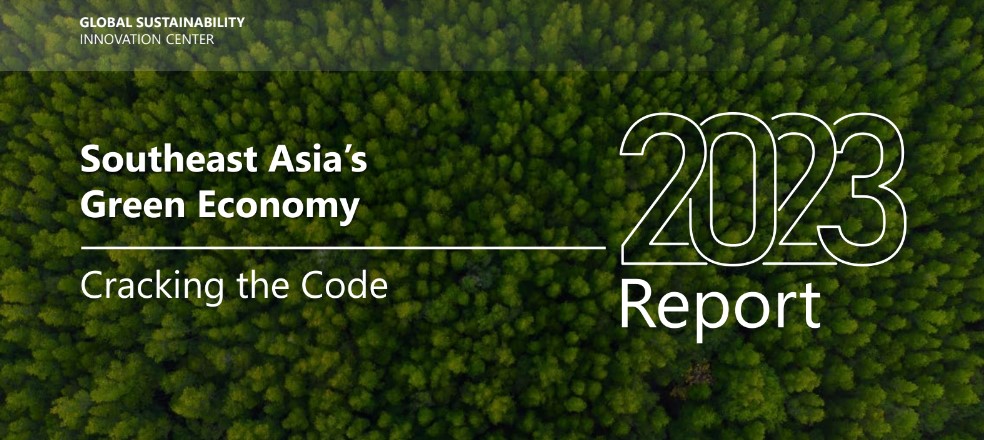Southeast Asian (SEA) governments need to take more action to meet nationally determined contribution (NDC) targets by 2030, according to the Southeast Asia’s Green Economy 2023 Report: Cracking the Code, by Bain & Company, Temasek, GenZero, and Amazon Web Services (AWS).
To unlock the green economy potential and meet their emission reduction commitments, the region needs to cut greenhouse gas emissions by 33% from business-as-usual levels by 2030.
Four SEA countries – Indonesia, Singapore, Thailand, and Vietnam – have committed to material emission reduction targets by 2030. Furthermore, eight out of 10 SEA nations have set carbon neutrality goals.
However, green investments decreased by 7% to USD 5.2 billion in 2022, with over half going to Indonesia and Singapore.
Dale Hardcastle, Global Head of Carbon Markets and Director of Global Sustainability Innovation Center at Bain & Company, emphasised the need for SEA governments to concentrate on proven solutions to balance rising energy demand and reduce carbon emissions.
Wai Hoong Fock, Head, Southeast Asia, Temasek, urged a holistic approach involving all stakeholders, including governments, businesses, academia, and individuals.
The report highlighted the crucial role of the nature and energy sectors, which contribute to 85% of SEA’s total emissions reduction targets. Despite plentiful renewable energy resources, regulatory uncertainty and slow approval of infrastructure hold back the region’s full potential.
The energy sector needs to streamline its permit process, accelerate grid modernisation efforts, and increase financial incentives for renewables.
Nature-based solutions, such as protecting intact lands and sustainable agriculture, present significant abatement potential. However, ineffective forest conservation policy enforcement and insufficient smallholder financing are key barriers.
To unlock nature’s untapped potential, SEA countries need to build institutional capacity for conservation policy enforcement and align domestic carbon project standards internationally.
Frederick Teo, Chief Executive Officer of GenZero, highlighted the significant opportunities for green investments in SEA. The region could create between five and six million green jobs by 2030 as a result of sustainability investments in ASEAN-6, comprising Indonesia, Malaysia, Philippines, Singapore, Thailand, and Vietnam.
Finally, Ken Haig, Head of Energy and Environmental Policy, Asia Pacific and Japan, AWS, stressed the crucial role of cloud technology in developing sustainability solutions to help SEA meet its ambitious climate goals.
The report concludes that public and private sectors must act collectively for SEA to meet its economic and climate goals.
BusinessNewsAsia
